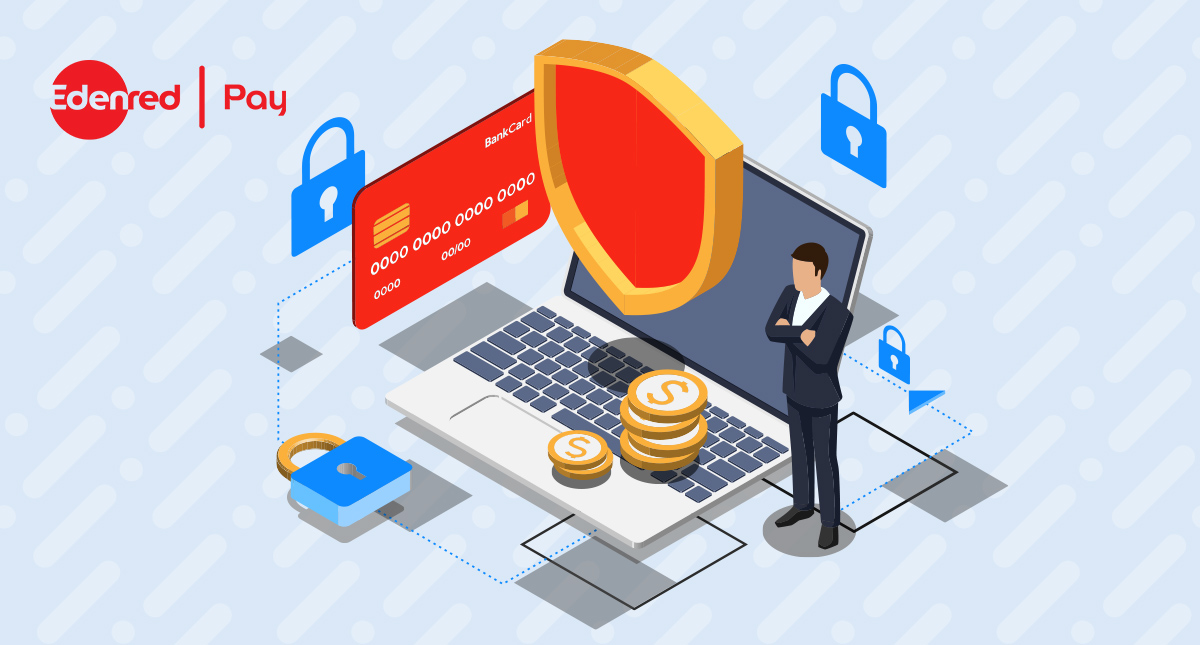The stakes for Homeowners Associations (HOAs) to protect their financial data have never been higher. Cyber-attacks and payment fraud are on the rise, threatening not just the financial health of communities but also their reputations. A single data breach or fraudulent transaction can lead to severe financial losses, legal ramifications, and a breakdown of trust among residents. For finance leaders at HOAs, the challenge is clear: robust data security measures are not just a regulatory requirement – they are essential to maintaining the integrity and confidence of your community.
This article will provide strategies to help protect your HOA from cyber-attacks and payment fraud.
Understanding the threat landscape
HOAs, like many other organizations, are prime targets for cybercriminals. When cybercriminals gain access to an HOA’s data, the potential for misuse is vast. This data can be exploited for identity theft, fraudulent activities, and other malicious purposes that put the entire community at risk.
Key data breach methods
Data breaches can occur in several ways:
- Hacking. Exploiting vulnerabilities in software or networks to access sensitive data.
- PhishingA type of cyberattack that uses fraudulent emails to trick users into sharing sensitive information like login credentials or banking details. scams. Tricking finance staff and HOA members into revealing personal information through deceptive emails or websites, putting sensitive data at risk.
- Malware. Installing malicious software on community computers or networks to steal data.
- Insider threats. Whether intentional or accidental, individuals within a community association can also pose risks by mishandling or exposing sensitive financial data.
Common payment fraud scams
Beyond data breaches, HOAs must also be vigilant against payment fraud, which can have equally devastating effects on their financial stability. Some common payment fraud scams include:
- Check fraud. Despite the rise of digital payments, check fraud remains a significant threat. Fraudsters may alter checks to change the payee or amount, or they may create counterfeit checks using stolen account information. HOAs that rely on paper checks for payments are particularly vulnerable as checks can easily be intercepted once they are in the mail.
- Business Email Compromise (BEC)A cybercrime in which attackers impersonate executives or suppliers to fraudulently divert payments. C. In this scam, cybercriminals impersonate a trusted individual – such as a supplier, senior executive, or even an HOA board member – via email, text, or phone, requesting a payment or change in payment instructions. These fraudulent emails often look legitimate, making them difficult to detect without scrutiny.
- Vendor fraud. Fraudsters may pose as suppliers, submitting fake invoices for payment. Without proper verification, these payments can be processed, leading to financial losses for the HOA. Manual invoice approval processes are especially vulnerable to these scams.
- Wire transferAn electronic method for sending funds between banks, often used for large or urgent payments. # # # fraud. Cybercriminals may also attempt to redirect wire transfers by hacking into email accounts at an HOA or using social engineering tactics. Once a wire transferAn electronic method for sending funds between banks, often used for large or urgent payments. # # # is sent to a fraudulent account, it is often difficult, if not impossible, to recover the funds.
Why data security matters for HOAs
HOAs handle a wealth of sensitive information, from the personal data of residents to financial records and bank account details. The consequences of failing to protect this data are significant:
- Legal liabilities. HOAs are legally obligated to securely store members’ information. Breaches can lead to lawsuits, fines, and other legal issues.
- Financial loss. Beyond the immediate costs of a breach, including fines and remediation, the long-term financial impact can be severe as trust in the association is eroded.
- Reputational damage. A data breach can tarnish the reputation of an HOA, making it difficult to maintain trust with current residents and attract new ones.
Seven essential data security tips for HOAs
To protect your community from the financial and reputational risks associated with cyber-attacks and payment fraud, consider implementing the following best practices:
- Educate board members. Ensure that all board members are knowledgeable about data security. They should understand the type of data the association holds, its purposes, and how it is protected. Promote a culture of transparency and responsibility.
- Educate residents. Regularly inform residents about data security practices and encourage them to take an active role in protecting their personal and financial information. A well-informed community is less likely to fall victim to phishingA type of cyberattack that uses fraudulent emails to trick users into sharing sensitive information like login credentials or banking details. scams and other threats.
- Implement strong password policies. Encourage members and association staff to use unique, secure passwords for HOA-related accounts. Passwords should be complex, incorporating uppercase and lowercase letters, numbers, and special characters.
- Develop a data security policy. Create a comprehensive policy outlining how resident and financial data is stored, who has access to it, and the steps to take in the event of a breach. This policy should be easily accessible to all relevant parties and regularly reviewed.
- Comply with data laws. Ensure your HOA complies with all relevant privacy laws to avoid penalties. Regularly consult with legal counsel to stay updated on changes in regulations.
- Review insurance coverage. Make sure your HOA’s insurance policy includes coverage for cyber-attacks and data breaches. Ask you agent whether the coverage meets your needs.
- Choose the right financial automation partner. Prioritize security when automating your financial processes. Ask potential partners about their data hosting, separation of duties, data encryption, access management, audit logging, and data retention and recovery practices.
These essentials will help mitigate your community’s cyber security and payment fraud risks.
Conclusion
By taking proactive steps to secure data and prevent fraud, finance leaders at HOAs can protect their communities from the severe financial and reputational consequences of cyber-attacks and payment fraud. The security of your community’s data is not just a regulatory obligation – it is a vital component of maintaining trust and ensuring the long-term success of your association.

Ready to elevate your B2B payments?
Whether you are automating for the first time, ready to refresh your existing technology, or looking for ways to complete the ‘last mile’ of automation, Edenred Pay can help. Let’s chat about your needs.







